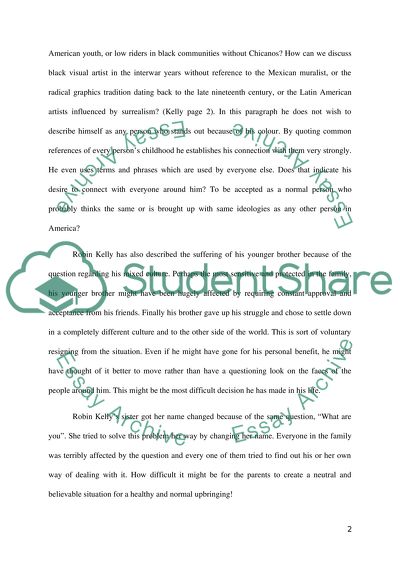Cite this document
(“Being Polycultural Essay Example | Topics and Well Written Essays - 1250 words”, n.d.)
Retrieved from https://studentshare.org/english/1436368-robin-d-g-kelly-in-the-people-in-me-describes
Retrieved from https://studentshare.org/english/1436368-robin-d-g-kelly-in-the-people-in-me-describes
(Being Polycultural Essay Example | Topics and Well Written Essays - 1250 Words)
https://studentshare.org/english/1436368-robin-d-g-kelly-in-the-people-in-me-describes.
https://studentshare.org/english/1436368-robin-d-g-kelly-in-the-people-in-me-describes.
“Being Polycultural Essay Example | Topics and Well Written Essays - 1250 Words”, n.d. https://studentshare.org/english/1436368-robin-d-g-kelly-in-the-people-in-me-describes.


